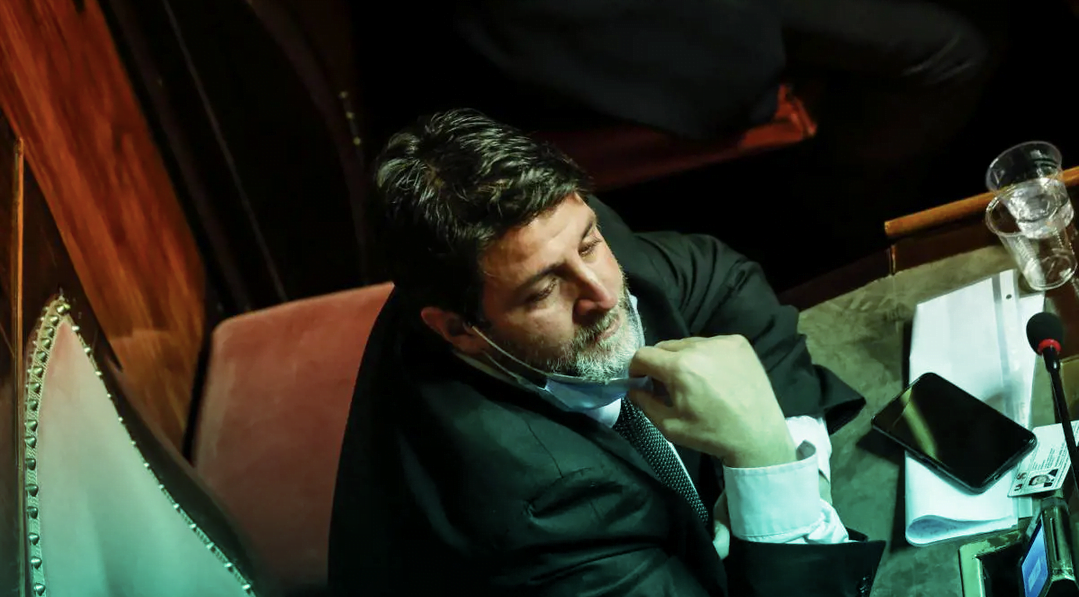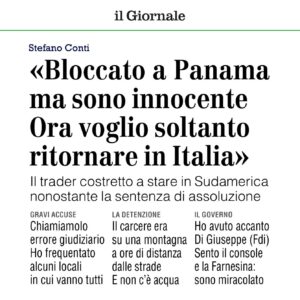
Il Giornale.it Felice Manti
U.S. Comites chairman Di Giuseppe’s complaint to prosecutors: ‘Too much fraud’
The next government will be decided abroad. Not (only) because of pressure from international secretariats but mainly because of the weight of the 12 elected parliamentarians in the world. The ill-fated M5s reform that cut the number of MPs from 945 to 600 has made each of the elected members more decisive for the balance of the next majority. Let alone those who – recent history tells us – were often elected thanks to votes bought from mafia bosses, with packets of ballots intercepted (and voted on) for 800, 1,000 euros.
The latest was Senator Adriano Cario elected in the America constituency, who was declared disqualified last January due to fraud: in Buenos Aires, at least 20,000 ballots were allegedly manipulated, says the Argentine judiciary. Senator Nicola Di Girolamo in 2008 was elected with Forza Italia in Germany thanks to votes paid 50 euros apiece by the ‘ndrangheta, which even in Cologne makes good money.
“Someone has started to remember us,” Andrea Di Giuseppe, a successful entrepreneur who heads Com.It.Es South East USA and the committee that brings together all ten American Com.It.Es, tells the Journal, “but we have to figure out whether everyone will be able to vote or just a part. And which part….” The left, of course. “Italians abroad are second-class citizens for their country,” says Di Giuseppe, who has filed a complaint with the Prosecutor’s Office in Rome (pictured) accusing the Foreign Ministry of denying the right to vote to all Italians and trampling on the Constitution. The Com.It.Es. are directly elected bodies of residents abroad and like many Patronages are firmly in the hands of the left. Only a few have the right to vote to elect representatives to the Cgie, the General Council of Italians Abroad composed of 43 elected members from 17 countries where nominations are actually decided. The Farnesina, which appoints 20 more members of the Cgie, knows full well that because of “a complex and cumbersome voter registration system,” writes the editor of the Italian newspaper of the Americas Gente d’Italia Domenico Porpiglia, those who will receive the ballot border on zero percent of the eligible voters, about 6 million including 4.5 registered voters.
“An Italian citizen living in Bangkok does not enjoy the same political rights as one living in Luxembourg,” the complaint reads. A distortion that adds to the very high risk of fraud. “For the referendums on justice, the ballot envelopes did not arrive, they say paper was missing. Does that seem possible to you?” says Di Giuseppe, who now demands clarity: “We demand that the envelopes arrive in time so as not to invalidate the vote, we will monitor any oddities” that the Italian Parliament has never been able to correct. Italia Viva with Massimo Ungaro and Laura Garavini, who were elected in the Overseas-Europe Constituency, called (in vain) for traceability of the envelope and the ballot phase with a QR code. Nothing to do.
“It doesn’t matter who votes, it matters who counts the votes,” Stalin said. Many people still have in their eyes the footage gathered by Filippo Roma of the Hyenas of the Civil Defense shed in Castelnuovo di Porto, Rome, with 10,000 pollsters who didn’t give a damn about the rules. Scenes set to repeat on Sept. 25.





